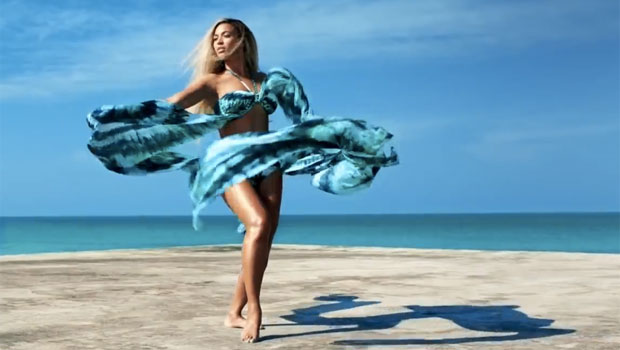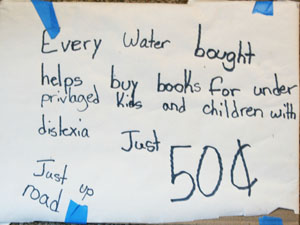
Is it Art or Advertising?
In today’s world it is getting tougher all the time to distinguish between marketing materials and art or entertainment.
Focused as I am on trying to protect us all from deceptive advertising, I’ve tried to enlighten my three children on the finer points of marketing and the horrors of fraudulent advertising. Not to toot my own horn, but I did give myself a little pat on the back when my 13-year-old asked what Lance Armstrong was doing in a beer commercial, and how could that be good for a cancer survivor. Yes, the lessons were paying off! But I soon had to re-examine exactly what it was that I was teaching my kids.
As is the annual tradition, my in-laws took my kids for a beach week when school ended. My daughter reported to me that one day she set up a lemonade stand at the house and made over $30 selling lemonade and water (and had a profit of over $20 after paying for the lemonade). Given that my in-laws live on a dead-end street, I was quite proud of my salesgirl.
 It wasn’t until the children were home that I learned of the sign my daughter had prominently affixed to her stand. “Helps buy books for children with dyslexia.” When I inquired, my daughter informed me that the sign actually read “Every water bought helps buy books for under privileged kids and children with dyslexia,” and that she’d only sold one water for $1. She further explained to me that given the fact that she is dyslexic, the sign applied to her and she could pocket the money for herself.
It wasn’t until the children were home that I learned of the sign my daughter had prominently affixed to her stand. “Helps buy books for children with dyslexia.” When I inquired, my daughter informed me that the sign actually read “Every water bought helps buy books for under privileged kids and children with dyslexia,” and that she’d only sold one water for $1. She further explained to me that given the fact that she is dyslexic, the sign applied to her and she could pocket the money for herself.
Savvy marketer or deceptive scam artist? Well, according to the law, the number one rule of advertising is that it must be truthful and not misleading. In my humble opinion, my daughter probably crossed that line. So instead of teaching my daughter how to avoid the pitfalls of deceptive marketing, it actually appears that I’ve taught her how to rip you all off. Clearly won’t be winning mother-of-the-year.
In today’s world it is getting tougher all the time to distinguish between marketing materials and art or entertainment.
Diamonds, energy supplements and cholesterol reducing drugs made legal headlines in the I-think-you’re-lying-to-me category during the week of February 11, 2013. Two new false advertising actions were filed: It’s a…
During the week of February 4, 2013, digestion, food, and make-up bubbled to the top of the legal I-think-you’re-lying-to-me landscape. Three new false advertising class actions were filed: Maybelline was…
